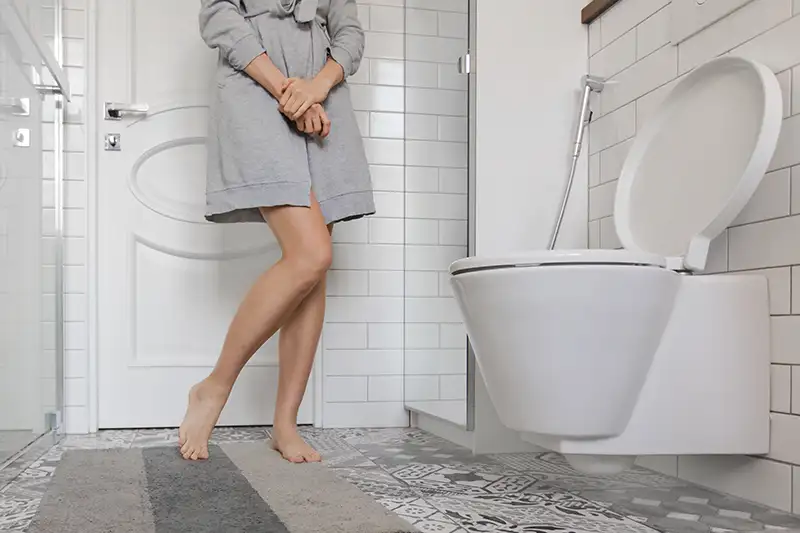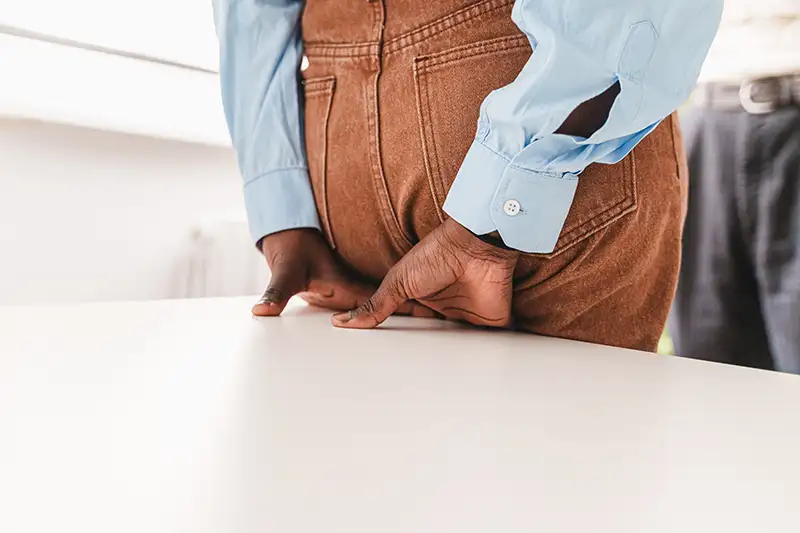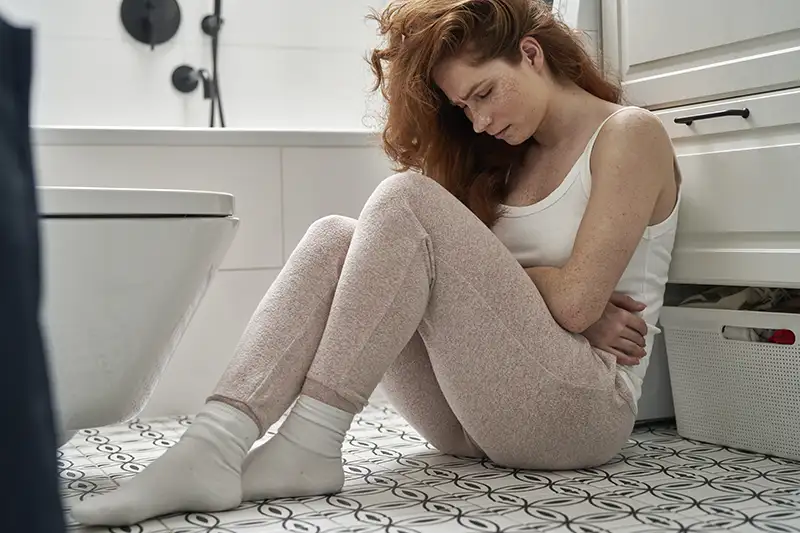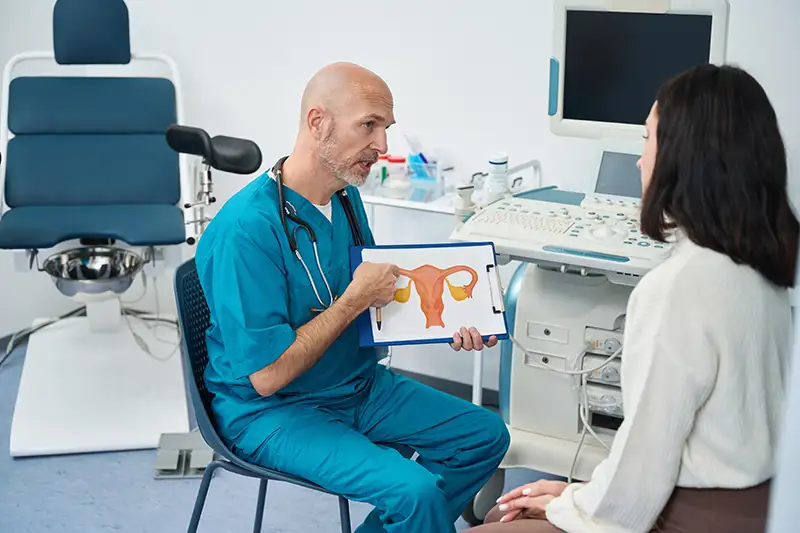What is Urinary Retention
Urinary Retention is when you are unable to empty your bladder fully. Urinary retention can happen in two ways, it can develop suddenly out of nowhere which is called Acute Urinary Retention or it can happen gradually over time which is called Chronic Urinary Retention.
With Acute Urinary Retention, you may only be able to urinate in small amounts or not at all, even though your bladder feels full. With Chronic Urinary Retention you are able to go to the restroom but your bladder is still partially full afterwards.

What Causes Urinary Retention
Unfortunately there are several things that can cause urinary retention, with some of the most common listed below:
- Structural Problems: Issues like a narrowing of the urethra or blockages can make it hard to empty the bladder.
- Weak Muscles: Weak bladder muscles or pelvic floor dysfunction can lead to urinary retention, making it difficult to fully empty the bladder.
- Nerve Issues: Nerve problems caused by conditions such as diabetes, stroke, heavy metal poisoning, spinal cord injuries, or Parkinson’s disease can disrupt communication between the bladder and the brain, leading to urinary retention.
- Medications: Certain medications, including hormonal agents, muscle relaxants, antidepressants, and antihistamines, can interfere with bladder function and cause urinary retention.
- Surgery: Surgery on the urinary system, especially during the recovery period, can cause urinary retention. This may be due to the effects of anesthesia, pain from the surgery, or changes in the pelvic nerves.
- Health Problems: Health issues such as benign prostatic hyperplasia (BPH), prostatitis, and urinary tract infections can also cause urinary retention. BPH, in particular, involves an enlarged prostate gland in men, which can block urine flow and thicken the bladder wall.

Symptoms of Urinary Retention
When it comes to symptoms for urinary retention, this can depend on the type of urinary retention that you’re experiencing. Acute urinary retention can be very painful and can cause abdominal bloating. With chronic urinary retention, you may have no symptoms or you may have a variety of symptoms including:
- Difficulty urinating
- A weak or interrupted urine stream
- A strong urge to urinate with little result
- Frequent urination in small amounts
- A sensation of incomplete bladder emptying
- Mild pain or discomfort in the lower abdomen or urinary tract
If you’re experiencing any of these symptoms, it’s important to see a medical professional as soon as possible. Urinary retention can worsen over time if not treated and may lead to complications such as urinary tract infections, swollen kidneys, kidney failure, bladder issues, and even life-threatening conditions.
At Incontinence Centers of America, we understand the challenges our patients face with bladder issues. Our practice is dedicated to providing the support and care you need. Reach out to us today to schedule your appointment.
When to Seek Immediate Care in Denver and Colorado Springs
Some cases of urinary retention require urgent medical attention. Contact Incontinence Centers of America immediately if you experience:
- Inability to urinate at all (acute urinary retention)
- Severe abdominal pain or bloating
- Blood in your urine
- Signs of infection, such as fever or burning sensation
Prompt evaluation can prevent serious complications and allow timely interventions, including Axonics Therapy or other treatments.
Treatment Options for Urinary Retention
At Incontinence Centers of America, we offer a range of treatments for urinary retention. One of our latest options is Axonics Therapy, which targets the nerves and muscles that control the bladder. This therapy has been shown to effectively improve bladder control and help patients regain their normal lives.
Advanced Nerve-Based Treatments for Urinary Retention in Denver and Colorado Springs
For patients who have not found relief with medications or behavioral therapy, Axonics Therapy offers a highly effective, minimally invasive option. This therapy targets the sacral nerves, which control bladder muscles and pelvic floor function, helping restore normal communication between the brain and bladder.
Axonics Therapy is designed to improve bladder emptying, reduce urinary urgency, and enhance overall quality of life. The procedure is outpatient, minimally invasive, and allows patients to maintain their daily activities while receiving long-term relief. Many patients in Denver and Colorado Springs report fewer symptoms of urinary retention and better bladder control after treatment.
Backed by clinical studies, Axonics® therapy is designed to help restore normal communication between your brain and your bladder or your brain and your bowel. Thanks to Axonics®:
- 93% of patients achieved clinically significant improvements after 2 years
- 94% of patients were satisfied with the Axonics® therapy
- Less than 2% felt any discomfort from the implant
1. Pezzella A, McCrery R, Lane F, et al. Two-year outcomes of the ARTISAN-SNM study for the treatment of urinary urgency incontinence using the Axonics rechargeable sacral neuromodulation system. Neurourol Urodyn. 2021;40(2):714-721. doi:10.1002/nau.24615
2. Blok, B, et al. Neurourol Urodyn. 2020
In addition to Axonics Therapy, we provide traditional treatments such as medications and behavioral therapy. Our team will work with you to develop a customized plan that addresses your unique needs and goals, aiming to help you fully empty your bladder.
Frequently Asked Questions about Urinary Retention
How long can you go with urinary retention?
If your bladder function has been compromised in any way, it could be a symptom of another underlying health problem. Don’t wait a long time to address difficulty urinating. After 36 to 48 hours of symptoms, it’s time to seek a professional diagnosis.
What aggravates urinary retention?
Some individuals complain of bladder issues after eating acidic and spicy foods. Acidic foods include citrus fruits and their juices, pineapple, vinegar, tomatoes and tomato products. Spicy foods include hot peppers, curry, chili sauce and powder, etc.
Should I drink water if I have urinary retention?
Staying hydrated by drinking plenty of water throughout the day is one of the essential pieces of any treatment plan for urinary retention. How much water you need per day depends on several factors, including where you live, your activity level, and your age.
Can Axonics Therapy help if I have chronic urinary retention?
Yes, Axonics Therapy can be highly effective for chronic urinary retention by stimulating the sacral nerves and improving bladder emptying. Incontinence Centers of America tailors the therapy to each patient’s needs for long-term results.
Are there risks with nerve stimulation therapies for urinary retention?
Axonics Therapy is minimally invasive and generally well-tolerated. Our specialists in Denver and Colorado Springs monitor patients carefully to minimize any discomfort and ensure safe, effective outcomes.
Is urinary retention common among older adults?
Urinary retention can affect adults of any age, but it is more common in older adults, particularly men with enlarged prostates or women with pelvic floor weakness. Early evaluation and treatment help prevent complications.







